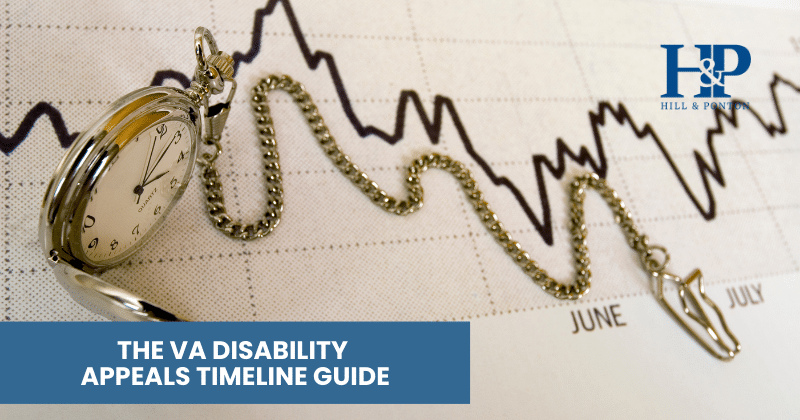The importance of VA disability benefits for veterans cannot be overstated.
These benefits provide crucial financial and medical support to veterans who have experienced service-related disabilities.
However, the process of obtaining VA disability benefits can be complex and challenging, and sometimes claims may be denied or rating decisions may be unsatisfactory.
To address this, the Department of Veterans Affairs (VA) has established a disability appeals process, which allows veterans to challenge denied claims or rating decisions.
Understanding the timeline and steps involved in this appeals process is essential for veterans seeking to navigate the system effectively and obtain the benefits they deserve.
In this comprehensive guide, we will provide an overview of the VA disability appeals process, including the importance of VA disability benefits for veterans, the key steps involved in the appeals process, and the need for understanding the timeline and best practices for successful outcomes.
By gaining a clear understanding of the appeals process, veterans can empower themselves to pursue their rightful benefits and receive the support they deserve for their service-related disabilities.
Understanding the VA Disability Appeals Process Timeline
The VA disability appeals process can be complex and time-consuming, but it’s crucial for veterans who believe they are entitled to disability benefits for service-related injuries or conditions.
To successfully navigate this process, it’s essential to have a thorough understanding of the timeline and steps involved.
This section provides an overview of the VA disability appeals process timeline, outlining the key steps from the initial application to the Board of Veterans’ Appeals (BVA) review, including important milestones such as the rating decision, Notice of Disagreement (NOD), Supplemental Statement of Case (SSOC), Decision Review Officer (DRO) review, and the possibility of remand.
Step 1: Initial Application
- The first step in the VA disability appeals process is submitting a claim for VA disability benefits.
- This involves gathering and submitting supporting evidence to demonstrate the existence and severity of the service-related disability.
- VA has its own timeline for processing the claim, which may vary depending on the complexity of the case and the workload of the VA regional office.
Step 2: Rating Decision
- After reviewing the evidence, VA will evaluate the claim and make a determination on the disability rating.
- The rating decision may result in various outcomes, such as a grant of benefits at the desired rating, a partial grant, or a denial of benefits.
- If the veteran is dissatisfied with the rating decision, they have the option to file an appeal.
Step 3: Notice of Disagreement (NOD)
- To appeal a rating decision, the veteran must file a Notice of Disagreement (NOD) within one year from the date of the decision.
- The NOD signals the veteran’s disagreement with VA’s decision and initiates the appeals process.
- VA will acknowledge the NOD and provide a timeline for review and response.
Step 4: Supplemental Statement of Case (SSOC)
- If the veteran wishes to further support their appeal, they may request an SSOC after filing an NOD.
- The veteran can submit additional evidence or arguments to strengthen their case.
- VA will review the SSOC request and evidence, and provide a timeline for their review process.
Step 5: Decision Review Officer (DRO) Review
- As an alternative to the traditional appeals process, the veteran may request a Decision Review Officer (DRO) review after submitting an SSOC.
- A DRO, who is a senior-level VA employee, will conduct a review of the appeal and consider any additional evidence.
- The DRO review process has its own timeline, and the veteran will be notified of the decision.
Step 6: Board of Veterans’ Appeals (BVA) Review
- If the veteran is dissatisfied with the DRO decision or if a DRO review was not requested, they may appeal to the Board of Veterans’ Appeals (BVA).
- The BVA is an independent entity within the VA that conducts a de novo review of the appeal, considering all the evidence and arguments.
- The BVA review process has its own timeline, and the veteran will receive a decision.
Step 7: Remand
- In some cases, the BVA may remand the case, which means sending it back to the regional office for further development or clarification.
- The remand process has its own timeline, and the veteran will be notified of any additional steps or requirements.
- Possible outcomes of remand include a grant of benefits, a denial, or further appeal options.
Tips and Best Practices
When navigating the VA disability appeals process, it’s important to keep in mind the following tips and best practices:
- Keeping track of deadlines and submitting timely appeals: Missing deadlines can result in the dismissal of your appeal. Make sure to carefully note and adhere to all deadlines, including those for filing a Notice of Disagreement (NOD), requesting a Supplemental Statement of Case (SSOC), and appealing to higher levels of review.
- Providing thorough and relevant evidence to support your claim at each stage: The success of your appeal largely depends on the evidence you provide. Be sure to gather and submit all relevant medical records, service records, and other supporting documentation to substantiate your claim for VA disability benefits.
- Understanding the importance of the SSOC and DRO review in the appeals process: The SSOC and DRO review stages provide an opportunity to present additional evidence or arguments in support of your claim. Take advantage of these stages to strengthen your case and address any concerns raised by VA in their decision.
- Seeking assistance from a qualified VA disability benefits expert or legal representative: The VA disability appeals process can be complex and daunting, and having expert guidance can greatly increase your chances of success. Consider working with a qualified VA disability benefits expert or legal representative who can provide knowledgeable assistance and advocate on your behalf. The team at Hill & Ponton can potentially help you with your case. Contact us today.
- Being prepared for potential delays in the appeals process, including remand: The appeals process can be lengthy, and delays are not uncommon. Be mentally prepared for potential delays, including cases that may be remanded back for further review or development of evidence.
- Monitoring the status of your appeal through VA’s online tools: VA provides online tools, such as the Veterans Benefits Management System (VBMS) and the Appeals Status tool, which allow you to track the status of your appeal and stay updated on any changes or updates. Regularly check these tools to stay informed about the progress of your appeal.
- Staying informed about changes in VA regulations and policies: VA regulations and policies regarding disability benefits may change over time. Stay informed about any updates or changes in VA regulations and policies that may impact your appeal. This can help you better understand the requirements and expectations of the appeals process and make informed decisions.
Successfully navigating the VA disability appeals process requires a thorough understanding of the timeline and steps involved, as well as adherence to best practices and tips.
By keeping track of deadlines, providing thorough evidence, understanding the importance of certain stages, seeking expert assistance, being prepared for delays, monitoring your appeal status, and staying informed about VA regulations, you can increase your chances of success in obtaining the disability benefits you deserve as a veteran.
Remember to always carefully follow the appeals process and seek help when needed, as VA disability benefits are an important resource for veterans who have served our country.
Are you considering appealing? We may be able to help you. Fill out a case evaluation form for more information.




